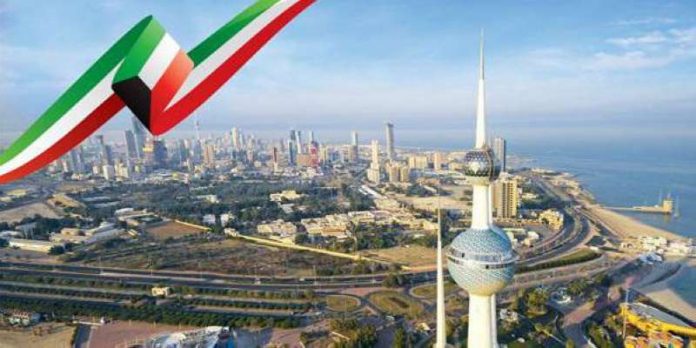The Central Bank of Kuwait (CBK), in its comparative analytical reading on the components of the Kuwaiti economy’s recovery from structural imbalances based on global indicators prepared by the Horizon Research Group, addressed 3 main points; the ability to absorb economic shocks, economic resilience, and, flexibility and health, Al-Rai daily reported.
CBK analytical paper, which determined the state of the Kuwaiti economy on the global map showed that Kuwait ranked 52nd globally on the Economic Resilience Index, which assesses the extent of the state’s ability to recover and return to levels before the Corona pandemic, recording 51.74 point, which is higher than the average of the countries of the Middle East and North Africa (49.01 points) and less than the global average (50.94 points), while it came after Saudi Arabia, which ranked 35 globally and the UAE ranked 28.
This axis includes 6 main indicators that include sub-indicators that measure the extent of the country’s economic resilience, as follows:
1, The adaptive capacity of the labor market:
This indicator measures the extent to which the labor market can adapt to the changes and new situations that occur during crises. Highly adaptive labor markets are not only characterized by great flexibility in hiring and layoffs, but also ensure the ability to work from home during a crisis, and labor market policies allow workers to upgrade and develop their skills and support a smooth transition to new jobs.
Kuwait ranked 88th globally according to this index, which includes 4 sub-indices, after Saudi Arabia, which ranked 47th, and the UAE, which ranked 58th.
2. Governance and Social Capital:
This indicator assesses the extent of society’s strength and trust in the government as one of the factors affecting a country’s ability to recover from the crisis. Very important and impactful assets such as human capital, and the specific skills and capabilities of the workforce.
The Central Bank’s paper stated that “social capital” falls under this category, and refers to the level of trust prevailing among members of society and their ability to work together to achieve common goals. It also includes “governance” as the rational management that leads efforts aimed at enhancing productivity and achieving sustainable development. Stressing that these elements are necessary for countries to return to normal, as countries with strong regulatory capacity and the rule of law, as well as social capital, in the form of high levels of trust and absence of corruption, will see more effective payments of stimulus measures.
The main index of “social capital” includes 3 sub-indices comprising 9 items, as Kuwait ranked 48th globally according to this index after Saudi Arabia, which ranked 35th and the 19th Emirates, and Kuwait ranked 48th globally according to the Law, Order and Governance Index. And ranked 50 according to the index of social capital, trust, and transparency. and 39 according to the confidence index in society.
3. Market Size and Prosperity:
This indicator assesses the extent of a country’s market size, access to external markets, and the economic prosperity of that country, which are also factors that play an important role in the process of recovering from crises, as countries with larger market sizes have a larger internal market that can better stimulate economic growth, and therefore it is less dependent on trading partners to recover.
Kuwait ranked 38 globally according to this indicator, which includes two sub-indicators (6 items), after the UAE, which ranked 26, ahead of Saudi Arabia, which ranked 43, while Kuwait ranked 5 globally in the economic prosperity index as a result of the high average share of the per capita GDP (6 globally) and total savings (4 globally), got a late rank according to the sub-index of market size and access to foreign markets (ranked 105 globally) as a result of the delay in its ranking in the customs duties index faced by Kuwaiti exported goods (ranked 112 globally) Logistics performance index (58 globally), and market size index (55 globally).
4 . The digital economy:
This indicator assesses the strength of the digital economy in various areas, including online government services, finance, internet speed, and accessibility, as the Corona crisis has made individuals around the world more dependent on digital services for all purposes.
According to this indicator, Kuwait ranked 39th globally after the UAE, which ranked 21st globally, and Saudi Arabia ranked 38th globally.
5. Education and skills:
This indicator assesses the skills and educational attainment of the current workforce, which will influence the speed of recovery from the crisis, and countries with higher levels of education and skills are likely to be better able to weather the crisis and better.
According to this indicator, Kuwait ranked 69 globally after the UAE, which ranked 28 globally, and Saudi Arabia ranked 42, and Kuwait ranked 75 globally according to the sub-index of the quality of education, especially if compared internationally similar in terms of average per capita GDP.
6. Flexibility of the Financial System:
This indicator assesses the sustainability of a country’s financial market, as countries with more flexible and accessible financial systems are less at risk of a pandemic financial crisis, and this could significantly alter the course of recovery.
And the Central Bank indicated in its analytical paper that Kuwait, according to the financial system resilience index, ranked 60th globally, after Saudi Arabia (43 globally) and the UAE (33 globally).

















